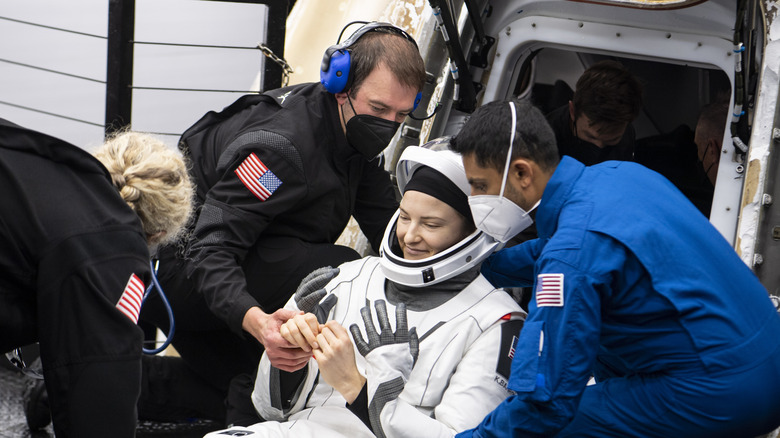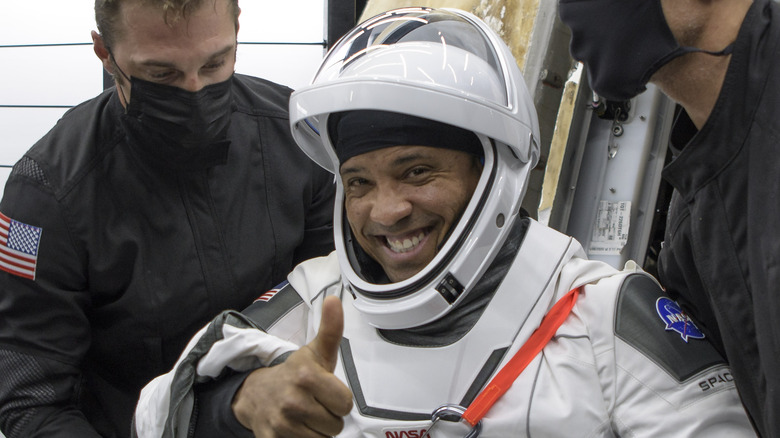Scientists Discover Space Travel Accelerates Aging
Space travel, as enticing as it sounds, comes with a smorgasbord of health risks due to the effect of weightlessness and radiation exposure. One of the most prominent effects of long-term stay in space habitats is the loss of bone mass, something NASA is studying quite closely. New research now claims that living in space can also accelerate the process of bone aging.
Published in the Nature Scientific Reports, the study comes courtesy of Anna-Maria Liphardt, a sports scientist at the Friedrich Alexander University (Erlangen-Nuremberg) in collaboration with experts from Canada, Germany, and the United States. As part of the lengthy investigation, 14 male and three female astronauts had their tibia and radius bones assessed for bone density and strength after returning from long missions.
It was found that even 12 months after their return from space, more than half of the astronauts had a 2% reduction in bone strength and mineral density. That number might not sound significant, but in the words of Liphardt, "it corresponds to age-related bone loss of at least a decade." Some of the astronauts examined as part of the research already exhibited irreparable damage to a crucial tissue called trabeculae.
Cracking the bone loss mystery for space travel
The longer a space mission lasts, the higher the chances that the lost density and strength can't be recovered. In the research paper, spaceflight-induced bone loss has been described as a phenomenon similar to age-related bone loss, albeit one that happens at a rather rapid pace. However, the pattern of bone loss in space, and in what region of the body it occurs, differs from the natural aging process on Earth.
Despite the differences though, the negative outcomes are similar. Long-term space travel can lead to the early arrival of serious problems like osteoporosis and higher susceptibility to fractures. The research postulates that a change in medication and developing new fitness routines might help combat some of the bone-related damages caused by an extended stay in space.
According to previous studies, for every month spent in space, astronauts lose between 1% and 2% of their bone mineral density. A 2018 examination of NASA astronaut Scott Kelly revealed that his stay in space slowed down his bone formation, and also took a toll on his cognitive abilities. Another research published in Nature Medicine revealed that red blood cells were destroyed in space at a rate that is 54% higher than on Earth, risking anemia fears for astronauts on missions to faraway destinations like Mars and beyond.

